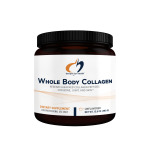
Understanding Digestive Enzymes: Your Guide to Better Digestion – By Dr. Maya
Have you ever wondered what happens inside your body after you eat? The key players in turning your meals into energy and nourishment are digestive enzymes—special proteins your body naturally produces.
What Exactly Are Digestive Enzymes?
Digestive enzymes are proteins that help break down food into nutrients your body can absorb. Without these essential enzymes, even the healthiest diet wouldn’t provide the nutrients your body needs to thrive.
How Are Digestive Enzymes Created?
- Production in Your Body: Digestive enzymes are primarily produced by your pancreas, stomach, and small intestine. Your cells create enzymes by translating genetic information into proteins, which are carefully folded and packaged to be ready for action.
- Activation at the Right Moment: To prevent enzymes from digesting tissues prematurely, they are initially produced as inactive forms called zymogens. These become activated in your small intestine when food arrives, ensuring they only work where they’re needed.
Types of Digestive Enzymes
- Proteases: Help digest proteins, turning them into usable amino acids.
- Lipases: Essential for breaking down fats into fatty acids and glycerol.
- Amylases: Crucial for converting carbohydrates into simple sugars your body can use for energy.
What About Enzyme Supplements?
Sometimes, our bodies might not produce enough digestive enzymes naturally. This can lead to digestive discomfort, bloating, or nutrient deficiencies. Commercial digestive enzyme supplements, derived from animal or plant sources, can provide additional support for digestion. Supplements can include enzymes like pancreatin (animal-derived) or plant-based enzymes such as bromelain (from pineapple) and papain (from papaya), which are particularly helpful in digesting proteins and reducing inflammation.
For those with specific food intolerances, targeted enzymes can be beneficial:
- Lactase helps digest lactose in dairy products, reducing bloating and gas.
- Gluten-specific enzymes (like DPP-IV) can offer support in digesting gluten-containing foods.
- Alpha-galactosidase assists in digesting beans, legumes, and cruciferous vegetables, minimizing gas and bloating.
Additionally, certain enzyme supplements can support your body’s natural detoxification processes:
- Proteolytic enzymes (such as serrapeptase and nattokinase) help break down proteins in your bloodstream, aiding detoxification and supporting immune function.
Could You Benefit from Enzyme Support?
If you’re experiencing digestive issues, food sensitivities, or simply want optimal nutrient absorption, digestive enzyme supplementation could significantly enhance your health and comfort. Always discuss with your healthcare provider or schedule an appointment with us at the clinic to explore the best personalized options for you.
To explore trusted enzyme supplements, check out my recommended selection on Fullscript.
Take care of your digestion, and your body will thank you!
Dr. Maya Sarkisyan
Stay tuned and discover “The True Story About Your Health”.








